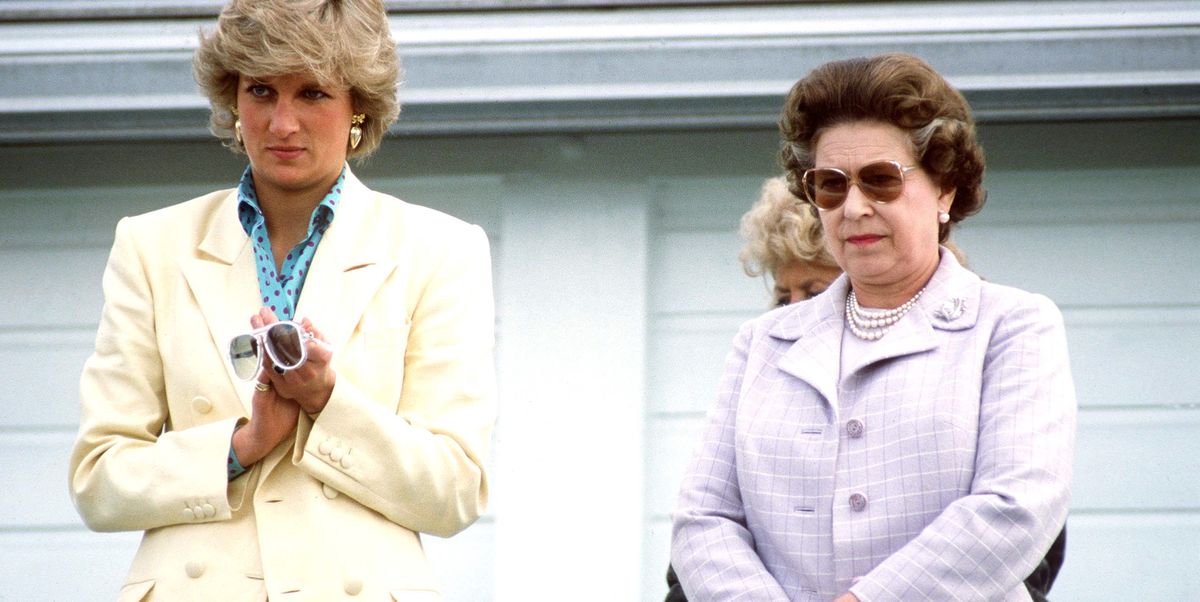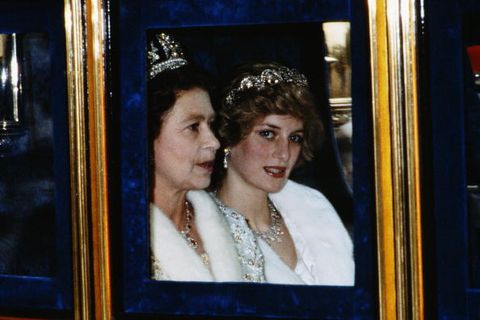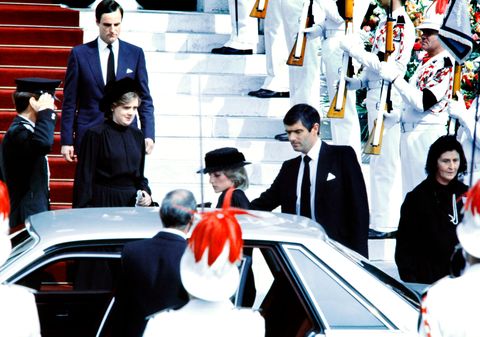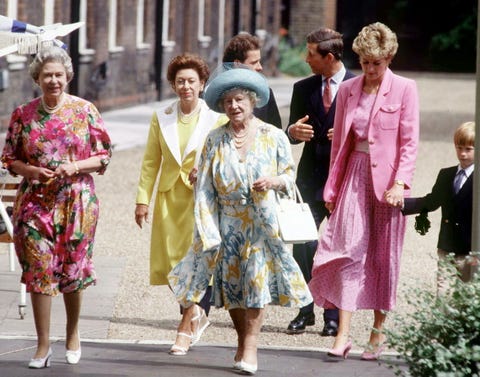The Crown season 4 episode 6 ends on what may be the most emotionally excruciating moment of the season (and there is no shortage of contenders). After returning from the emotional rollercoaster that was her Australian tour with Charles, Diana is at her wits’ end and requests an audience with the queen. She opens up about her marital problems with Charles and explains how he resents her for eclipsing him in the press. Far from offering any comfort, the queen is coldly unreceptive, asking Diana: “Is it possible that there’s a part of you that’s enjoying your own success a little too much?” She goes on to accuse Diana of playing up to the press for attention, and Diana admits it does feel good to get validation from the public, in lieu of getting any from her in-laws.
“If you show me love, approval and acceptance, everyone else will follow,” Diana says. She then hugs the queen, who seems more unsettled by this display of affection than she was when an intruder broke into her bedroom in the previous episode. It’s…brutal.
So how accurate is the depiction of the queen and Diana’s relationship in The Crown? Read on for the more complicated truth.
Diana’s relationship with the queen was initially friendly.
Although she’s sometimes described as a “commoner” and an outsider, Lady Diana Spencer was in fact no stranger to the royal family. The Spencers were an upper-class family with longstanding ties to the royals—Diana’s grandmothers were both ladies-in-waiting to Queen Elizabeth, the Queen Mother—so Diana and her sisters grew up in the same circles as Charles and his siblings. Diana had already met the queen before she began dating her son, and royal biographer Ingrid Seward wrote in 2001 that as the couple’s relationship blossomed, the queen “never directly addressed the question of his marriage, but by nod and nuance, she made it clear she approved of Diana.” The monarch also seemed to grossly overestimate Diana’s ability to adjust to royal life. In a letter written shortly after the couple’s engagement announcement, the queen notes, “I trust that Diana will find living here less of a burden than is expected.” Instead, the soon-to-be princess struggled with bulimia and loneliness in the months leading up to her wedding.
According to Andrew Morton’s 1992 biography, Diana: Her True Story—In Her Own Words, Diana’s relationship with the queen was friendly—at least in comparison to her relationship with the Queen Mother, who kept her at arm’s length. “However,” Morton writes, “it was governed by the fact that she was married to her older son and a future Monarch. In the early days, Diana was quite simply terrified of her mother-in-law. She kept the formal obsequies—dropping a deep curtsy each time they met—but otherwise kept her distance.”
The queen entrusted Diana with representing her at royal events very early.
In 1982, shortly after Charles and Diana were married, Grace Kelly—aka Grace, Princess of Monaco—died. Diana had encountered Grace at a gala the previous year and the two had bonded, so she went to Charles and asked if it would be possible for her to represent the queen at Grace’s funeral.
According to Morton, both Charles and palace staff told her it was unlikely she would be allowed to go. “I went to her private secretary, who was then Philip Moore, who said that he didn’t think it would be possible because I’d only been in the job three or four months,” Diana recalled to Morton. “I went to the queen and I said, ‘You know, I’d like to do this,’ and she said ‘I don’t see why not. If you want to do this, you can.'”
Though Diana was still new to her royal role and just 21 years old at the time, the queen was right to trust her. It was her first solo overseas trip as a representative of the royal family, and she won praise for her “dignified manner at the highly charged and at times mawkish funeral service,” per Morton.
How did the Queen react to Charles and Diana’s split?
As the pressures of her high profile and troubled marriage began to get to Diana, she felt “extremely isolated” by the royal family, who “continuously misunderstood” her, according to a letter she wrote to her friend Dudley Poplak in 1991.
Although there’s no reports of a scene quite as brutal as the one The Crown depicts, Seward writes that Diana would appear unannounced at the palace as her marriage crumbled:
At first, the Queen took a tolerant view of these unscheduled visits. “Diana was usually in a lot better mood when she left than she was when she arrived,” one of the Queen’s staff recalled.
In time, though, Elizabeth came to dread the meetings. After one session a footman said, “The Princess cried three times in a half an hour while she was waiting to see you.” The Queen replied, “I had her for an hour—and she cried nonstop.”
In a transcript of her interview with Morton, Diana recalled a conversation in which the Queen “indicated to [her] that the reason why our marriage had gone downhill was because Prince Charles was having such a difficult time with my bulimia.” In that moment, Diana explained, she realized the royal family saw her bulimia as the cause of her problems with Charles, rather than a symptom of them.
But the queen wasn’t wholly unsupportive. Just like Prince Philip, she did offer support to Diana in the wake of the split. “She [found] one perhaps rather unlikely ally at the palace in the queen,” Morton wrote, “whose understanding and helpful attitude did much to encourage Diana to soldier on.”
Did the queen learn anything from Diana?
According to Morton, the queen took at least one significant lesson from her relationship with Diana, Accurately or not, the public perception was that she didn’t make much of an effort to welcome her new daughter-in-law to the family. “One of the many ironies of [the queen’s] life is that Diana’s impact on the royal family is measured by how much more accommodating the house of Windsor is now to newcomers,” Morton wrote in the 2017 anniversary edition of his biography. “It is noticeable that the queen frequently joined Prince William’s bride Catherine Middleton, now the Duchess of Cambridge, in the early days of her Royal career. Certainly lessons have been learned—but at a price.”
This content is created and maintained by a third party, and imported onto this page to help users provide their email addresses. You may be able to find more information about this and similar content at piano.io



